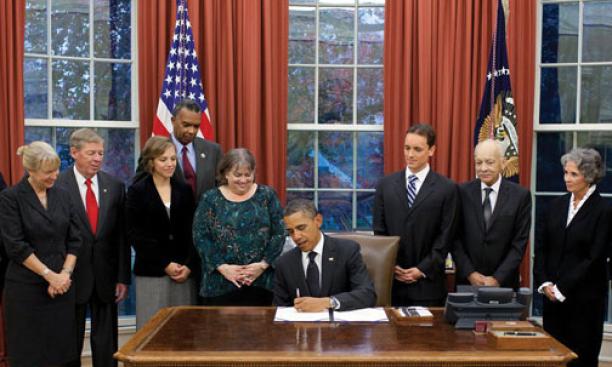

Kate Finn ’06 was a Peace Corps volunteer in a village in Costa Rica, teaching children and working with women’s groups, when a man raped her in 2007. The attacker’s family worked on the local police force, so she didn’t feel she could report the crime safely.
Her Peace Corps handbook had no helpful information on how to report an assault, she says, and she lived seven hours from the nearest Peace Corps office. Eventually she made the long trip to the capital, San Jose, and spoke with a Peace Corps medical officer, whose first question, says Finn, was, “Should I feel sorry for you?” The officer offered no counseling or medical assistance, says Finn, and at that point, “I knew that my story was not going to be treated with sensitivity or compassion.” Finn decided to leave her post and return to the United States.
Several years later, she read an article about First Response Action (FRA), an advocacy group founded in 2009 that was working to promote a stronger Peace Corps response to volunteers who are victims of physical and sexual assault. She quickly joined FRA and is one of six board members.
“I knew that I needed to speak up to make sure that other women didn’t have to have that same response,” she says, and to ensure that “other women were able to speak their stories and know that it wasn’t just them.”
Finn realized that the Peace Corps’ response to assaults on volunteers could be a systemic issue. According to the Peace Corps’ data, says Finn, in the last decade more than 1,000 volunteers reported being sexually assaulted. A 2010 survey of Peace Corps volunteers found that nearly half of sexual-assault victims that year had not reported the attacks, she says.
Finn and the other FRA board members have put a spotlight on the issue — meeting with Peace Corps officials, attracting media attention, and lining up allies in Washington who wrote legislation, the Kate Puzey Peace Corps Volunteer Protection Act, that was signed into law by President Barack Obama Nov. 21. It includes a requirement that the Peace Corps establish clear guidelines for reporting assaults, set up a sexual-assault advisory committee, improve training for Peace Corps volunteers and staff members so that they will better understand rape trauma and reporting requirements if an assault occurs, and implement a confidentiality policy to protect the identities of those who report crimes. The bill was named after a Peace Corps volunteer who was murdered after reporting a crime.
The bill “provides a great foundation for victim assistance in the Peace Corps” and will help the organization to make sure that its response is “consistent and comprehensive worldwide,” says Finn. As the FRA’s legislative liaison, she kept track of the bill as it moved through Congress and connected congressional staffers with experts in sexual-assault education, prevention, and response. (Finn’s day job also involves work with victims: She is program coordinator for the Victim Services Network at the Denver district attorney’s office.)
Most Peace Corps volunteers return with “amazing stories from their Peace Corps experience,” says Finn, but “my story ended so dark and so abruptly.” Even though the bill has become law, FRA’s work is not done, she says. The group will keep track of how the law is implemented, continue to be a resource for victims, and look at how it can support the Peace Corps in making the required changes.
